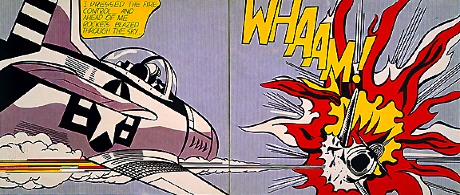The dawn of the space age, the height of the Cold War, the assassination of JFK, and a childlike self-confidence in the midst of an unprecedented period of prosperity that was never to be seen again in America — how much more exciting and interesting can the 1960’s be? Hit television series Mad Men captures its essence in brilliant form. Now in its fifth season (if its producers and distributors could agree to just get along), the show is on fire.

The magic of Mad Men is in its dry but heady portrayal of life in 1960s New York City. At the epicentre of the cultural and industrial revolution that marked the decade is Madison Avenue in Manhattan — home to the cream of America’s advertising industry where the world’s consumer tastes were literally being created by men like Don Draper (played by Jon Hamm), Creative Director of the fictional ad firm Sterling Cooper.
| SUPPORT INDEPENDENT SOCIAL COMMENTARY! Subscribe to our Substack community GRP Insider to receive by email our in-depth free weekly newsletter. Subscribe to our Substack newsletter, GRP Insider! Learn more |
In a period when the ill health effects of smoking was still considered debatable and not drinking when driving was still a recommendation, Draper’s episodes of creative bursts in the art of making people want products punctuates the drama woven around office politics marked by the banal sexism, racism and chauvinism of the time. The quaintness of 1960’s technology mixed with the emerging beholdenness to it adds a comic irony to the mood that so effectively gets inside the average viewer’s head. In one memorable episode where Draper is fuming about the use in a presentation of a report that he thought only he had access to, he says “I had a report just like that, and it’s not like there’s some magic machine that makes identical copies of things.” In another scene where Draper’s wife Betty (played by January Jones) gets into Draper’s brand new Cadillac for the first time, she swoons “it feels like we are in a space ship!”
To be fair, the 1960’s was, in fact, a remarkable decade. Man was rocketed to the moon at a time when the entirety of the computing power at NASA’s disposal was probably just one tenth that of the average 21st Century mobile phone. The only commercially viable supersonic air service organised around the 1960’s-designed Concorde was also launched. And Japan and Germany got back up to speed after devastating defeats in World War II to become the economic powerhouses of Asia and Europe respectively.

All these developments (and many more) now seem pretty straightforward and morally and ethically unambiguous in the eyes of the average 21st Century dweller. The genius of Mad Men is in how it induces its audience to step out of our jaded 21st Century minds and see — and experience — the 1960s with a refreshing innocence.
benign0 is the Webmaster of GetRealPhilippines.com.
My father bought a blue 1960 chevy station wagon. The term “station wagon” is now dead, I believe, and I am sure the name had something to do with train stations and horseless carriages.
Anyway, that beast of a car had horizontal tail fins and spongy springs. We rocketed across the plains of Colorado and the windy wilds of Wyoming heading northwest, and, at 70 per, I’d swear we were in a rocket ship somewhere between Oblivion and Euphoria.
The car sucked, mechanically, though. And lasted about two years. Dad went back to a Volkswagen.
I finished all 4 seasons earlier this year (In fact, I finished season 4 a few weeks ago); the show rocked IMO, but it was Fringe that gave me the most attention. (and that was something done by a young boy whose age is below the required age limit for watching the show.)
Young man, I mean.
Indeed, the show rocks! I’m just about to start the Season 4 DVD which we just bought last week. I do believe thought that car dealers and motor registries (at least from where I come from) still use the term “station wagon” though I think the line between those and “people movers” is starting to blur…
Indeed, the show is a very interesting one, in that it exposes the stuff hidden underneath 60’s-era family values in the United States.
The 60s is also primarily remembered as the decade of a civil rights movement whose effects were tapered and stifled by the American “commitments” in Southeast Asia. It was after these commitments fell through that they fell back on certain other commitments in the region in their supposed effort to halt communism’s domino effect.
Not to mention the scientific progress fueled so purely out of spite for the Commies that we inevitably found our heads in the clouds, blissfully ignorant of the problems down here on earth until they came to bite us coming out of the Cold War.
It was also, of course, the era of the hippies and their defiance of social norms, something today subsidized by the corporations that most of them shaved their beards and grew out of to work for. And that’s not entirely a bad thing, after all, money always made the world go round.
But perhaps we need a new 1960s in the sense that we need a new genuine movement for social progress against the corporate-oligarchy-subsidized roads to nowhere and oblivion. Space will still be there for a few billion years, what’s a few decades just to start fixing things up on earth, even here in the Philippines?
Maybe, in a way, that’s what we at GRP would be. Mad men for mad(dening) times.
IIRC Betty said that being in the coup de ville was like being in the cockpit of a jet. It is a great series in general but is still more fiction than fact about the 60s.